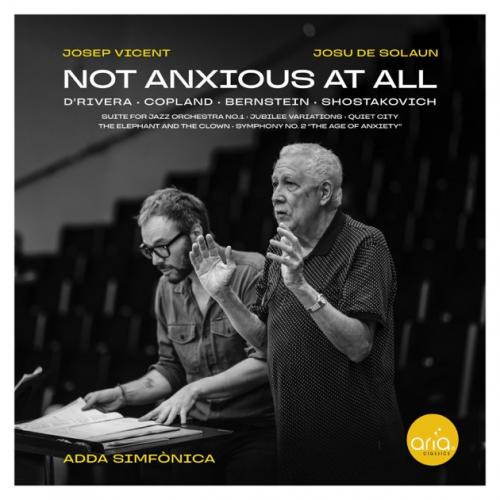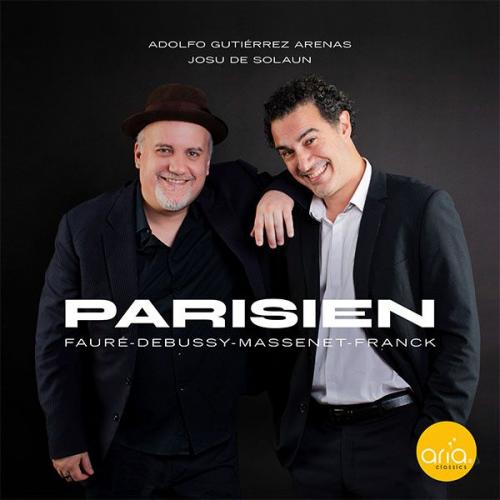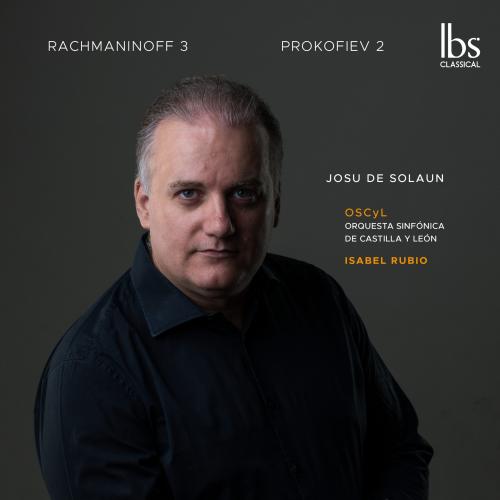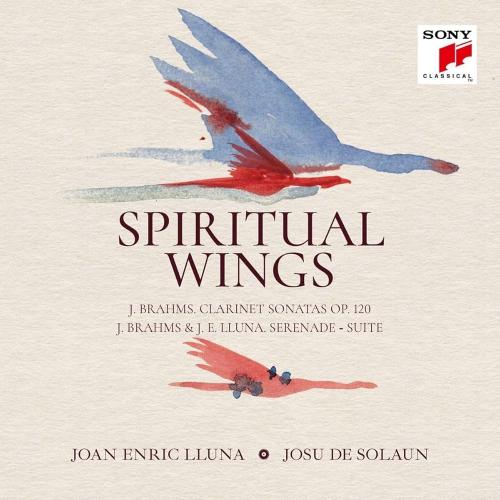Conducting
Unfortunately, in our times, too often, conducting is reduced to mechanics: intonation polished to sterility, ensemble togetherness as metronomic lockstep, technique as a shield against vulnerability. But music’s soul lies elsewhere. Historical authenticity, technical know-how, even a “perfect” sound; these are not ends, but tools. Tools that mean little if we forget “why” we gather: to conjure the unsayable, to give contour to longing.
I care less about whether the strings are impeccably in tune than whether their vibrato trembles with life. Less about rigid adherence to style than whether the phrase breathes with urgency. A technically flawless performance that lacks metaphor is a body without a pulse. What moves us is not the precision of the attack, but the ache in the decay; not the ensemble’s synchronicity, but the collective gasp when meaning erupts.
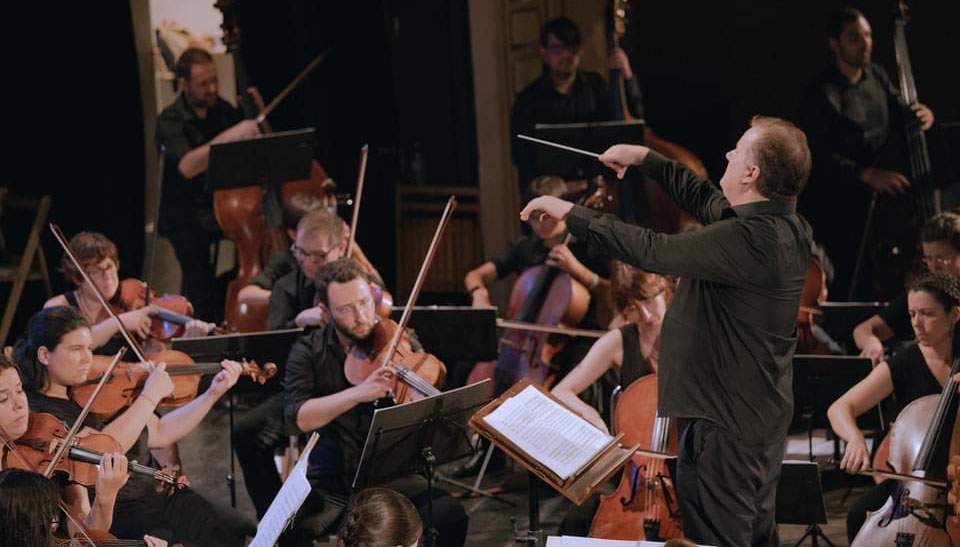
Conducting, thus, for me, has little to do with enforcing rules. It has everything to do with asking: What haunts this silence? What ghosts live in these notes? It is about replacing the tyranny of “correctness” with the sovereignty of soul: where a fermata lingers not because the score demands it, but because the room needs to “hold” something. Where a ritardando is not a tempo change, but a heartbeat faltering.
The modern concert hall, with its cult of technical perfection, often feels like a museum of frozen gestures. I try to humbly rebel by conducting as if the music were still wet clay, malleable, responsive, alive. Let the brass crack here; let the cello arrive late there. What matters is that we “mean” it. That every imperfection becomes a fissure where light (or shadow) can spill through.
Conducting is, at its root, the art of gesture. Long before batons, there were hands, sculpting air into meaning. I try that my own gestures borrow from ancient dialects: the fluid cheironomy of Gregorian chant, where fingers traced the rise and fall of neumes like birds riding thermal currents; the mudras of Indian dance, each curl of the wrist a sacred syllable; the gesticulation of Mediterranean storytellers, whose hands paint proverbs in midair. In Spain, where I was raised, flamenco’s “floreo” (the flick of a dancer’s wrist) is both rhythm and rhetoric, a punctuation mark in a fiery sentence. In Spain too, every conversation is a symphony of hands, vowels shaped by palms.
These traditions remind me that gesture is not decoration. It is ontology. The curve of a conductor’s hand can evoke the swell of a wave, the arc of a bridge, the bend of a weeping branch. When I try to shape a phrase, I think of the quilisma, that wavy neume from medieval chant, a glyph of ecstasy. Or the te’amim of Hebrew cantillation, where signs above the text map not just melody, but the breath of revelation. I try that my hands are not timekeepers. I try for them to be cartographers, tracing the invisible geography between sound and sense.
To conduct is to remember that every movement is a metaphor. A downward sweep of the arm isn’t just a beat, it’s a plow cutting soil, a wing descending. A flick of the fingers isn’t a cue, it’s a seed tossed into wind. The body knows this. Watch a child “conduct” their favorite music: their whole being sways, leaps, crumples. No technique, only truth. I strive to unlearn the stiffness of conservatory training and return to that child’s lexicon, where gesture is not taught, but unearthed.
In fact, long before batons or concert halls, or managers, conservatories, competitions, concerts, stages, there was a child sneaking downstairs at midnight. I’d place a vinyl on the turntable (Mahler, Mozart, whatever I’d smuggled from my father’s collection) and conduct my shadow orchestra with a butter knife. My bare feet kept time on the cold floor; my voice, barely a hum, mimicked the strings. To the sleeping house, I was a ghost. To me, I was everything: composer, conductor, choir. I wrote my first piece of music at a young age, scribbling notes for kitchen pots and a toy piano, convinced the creaks of our old home were the audience’s applause.
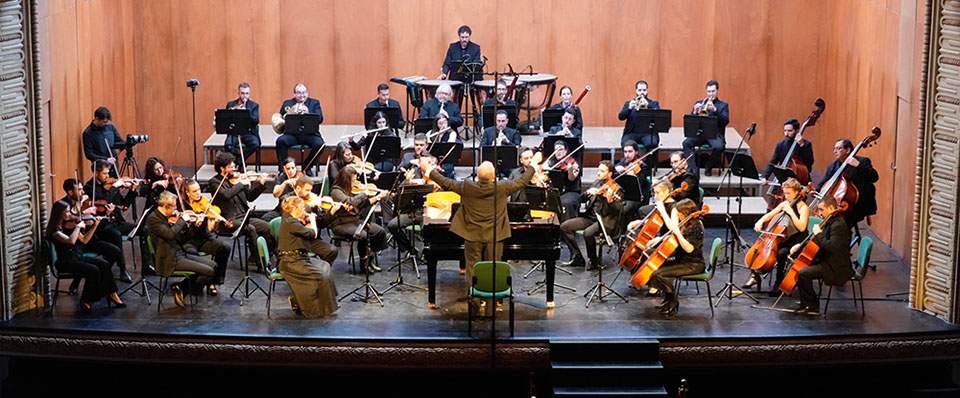
I But life has a way of narrowing us. For years, I became what the world demanded: a virtuoso pianist. A specialist. My hands, once conducting air, now drilled études for hours. My voice, once singing freely, fell silent. The stage celebrated my precision, but something ached. Mid-recital, I’d catch my left hand shaping phantom cues, as if an invisible ensemble lingered just offstage.
It took decades to unlearn the armor of specialization. To remember the child who believed a butter knife could conjure worlds. Today, when I conduct, I still feel that midnight hum in my ribs. The pianist’s discipline remains, but it is no longer a cage; it’s a bridge. A way to return to the generalist musician I’ve always been: the boy who couldn’t separate singing from playing, composing from dreaming, music from meaning.
And yet I’ve stood before orchestras, sometimes, where players, trained to perfection, forgot how to “mean.” Their notes were flawless, their rhythms exact, but their music felt vacant. Then, I always seek to begin again. To trade technical terms for metaphors: “Play this line as if you’re convincing a lover. Let this chord hang like a question mark.” Suddenly (only sometimes), the room changes. The violins lean in; the timpanist’s strike carries grief. The score is no longer a grid; it’s a script, a map.
The great lie of “absolute music” is that it exists apart from us. But sound is never neutral. A minor third does not “mean” sadness; it is sadness, distilled into vibration. The conductor’s task is to unearth that alchemy, to let intervals weep or laugh as they did when they were first pulled from the earth by human hands.
To rehearse is not to play notes, but to tend a fire. Each phrase should be a spark, each silence the dark between embers. Together, we should not make a performance, but a vigil, for all the music that’s been exiled from its stories, for the voices replaced by hammers and steel.
This is why I return, again and again, to the podium. Not to command, but to conspire. To gather the fragments: the abstract, the absolute, the avant-garde, and whisper: “Remember. You were once a cry. A prayer. A lullaby.”
click here for Josu's upcoming performances
